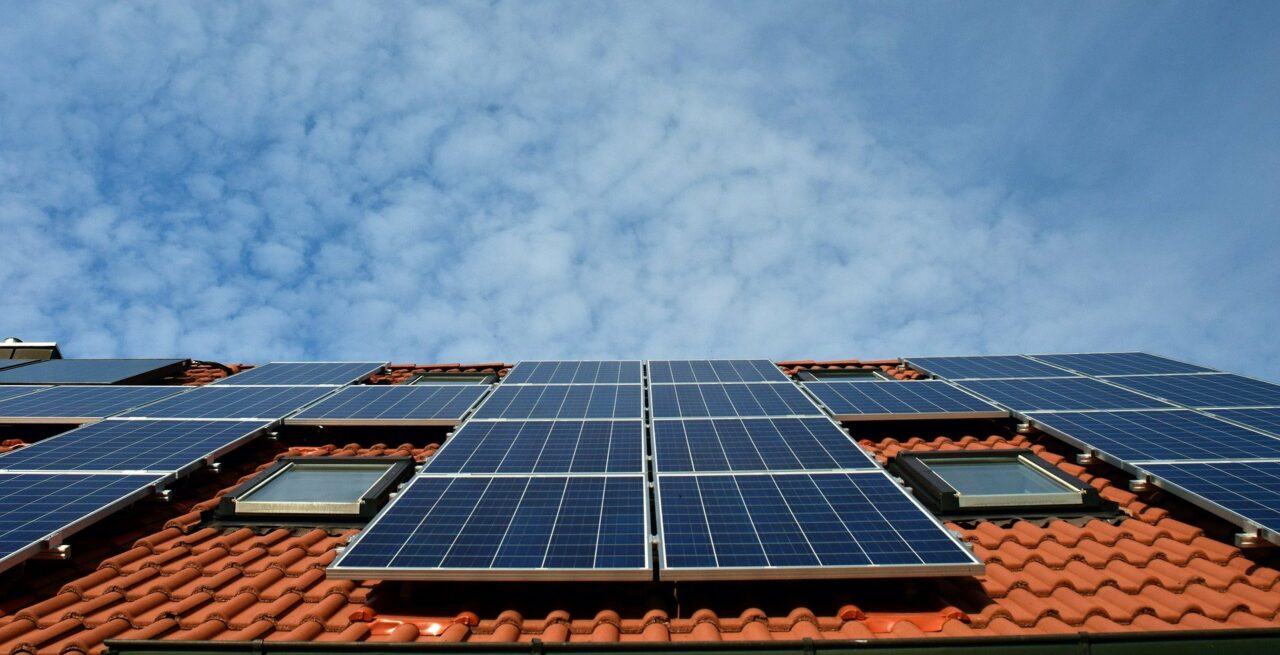
Installing a BESS alongside a solar PV system allows households to store the excess solar energy when it is not needed to then be used at night or during peak times. Image: Pixabay.
In a letter to the Environmental Audit Committee (EAC), the UK Government confirmed it is consulting on changing VAT rules on energy saving materials that enhance a household’s capacity to use solar energy.
Today’s announcement (31 May) follows an open letter from the EAC to Energy Security and Net Zero Secretary, Grant Shapps, detailing findings from its inquiry into how technological development can bolster energy produced by solar installations.
In the letter, the MPs from the EAC called for VAT to be removed from battery energy storage systems (BESS) when the technology is installed alongside or retrospective to an existing rooftop solar photovoltaic (PV) system.
Installing a BESS alongside a solar PV system allows households to store the excess solar energy when it is not needed to then be used at night or during peak times.
The potential of rooftop solar is being put forward by a number of bodies. Earlier this week the CPRE, a charity, found that installing solar PV on existing rooftops and other land (such as car parks) would provide at least 40-50GW of clean energy in England by 2035, rising to 117GW in 2050.
The EAC’s open letter also warned of a “dark cloud of delays” threatening the uptake of solar should the Government fail to promptly tackle the long grid connection waiting list plaguing solar and battery projects.
In response, the Government’s letter to the Committee outlined the work currently underway to address these concerns such as workstreams with Ofgem, network companies and National Grid ESO.
The Committee has said it will monitor the progress of these workstreams during its current enquiry: Enabling sustainable electrification of the UK economy.
An additional concern raised by the EAC was the upfront cost of solar installations deterring households from investing. Responding to this, the Energy Security Secretary confirmed that the Government is “exploring options for facilitating low-cost finance from retail lenders.”
Although the Government is still reluctant to make solar PV installations a minimum requirement within the Future Homes Standard, Shapps said he expects developers will lean towards rooftop solar PV installation to comply with new energy efficiency standards.
“Solar energy is now the cheapest form of power, and the future is bright to make the most of the technology both on the ground and on rooftops. Onshore solar is an invaluable component of the country’s Net Zero Britain ambitions, and I am pleased that the Government is committed to fulfilling its aim to increase capacity to 70GW by 2035,” said the EAC’s chairman, Philip Dunne MP.
“Earlier this month we wrote to the Energy Security Secretary with some recommendations to help the UK meets its solar potential. It is very welcome that tangible steps are being taken to address grid constraints and proper consideration is being given to ease the financial burden on households who may choose to install rooftop solar.
“The issue of VAT on batteries being installed after solar panels is an issue that has been raised multiple times within our Committee’s work. I am therefore very pleased that this is being considered in the Government’s consultation on VAT on energy saving materials, and the Committee will be making representations to the Chancellor of the Exchequer to highlight the evidence we have taken on this issue.”
